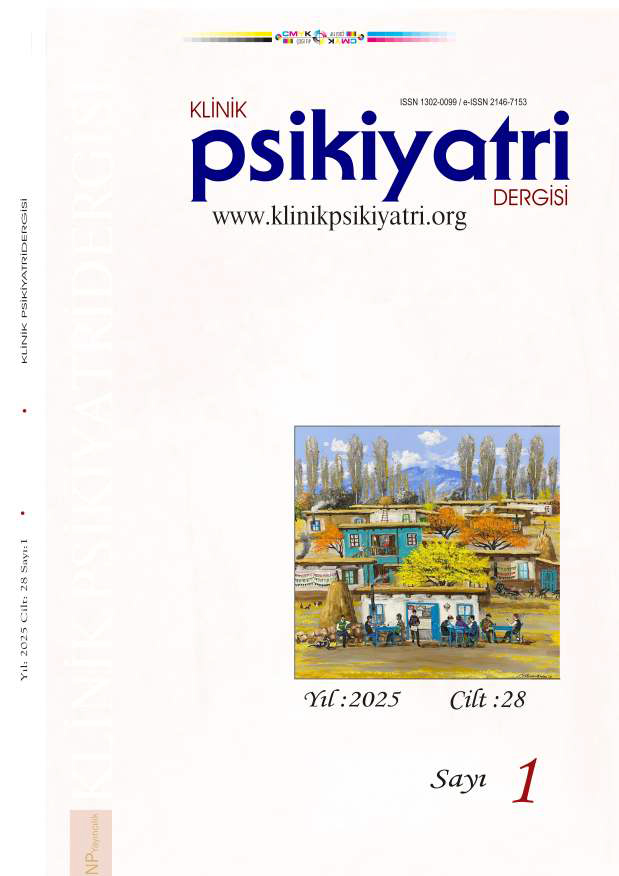




COVID-19 pandemisi sürecinde anksiyete ile umutsuzluk düzeylerinin psikososyal ve demografik değişkenlere göre incelenmesi (tur)
Yeşim Erdoğdu1, Filiz Koçoğlu2, Celil Sevim11Bağımsız Araştırmacı, İstanbul2Ondokuz Mayıs Üniversitesi Psikoloji Bölümü, Samsun
GİRİŞ ve AMAÇ: 2019’un Aralık ayından itibaren yayılımı hızla artan COVID-19, Dünya Sağlık Örgütü tarafından bulaşıcı bir hastalık olarak tanımlanmıştır. Dünya genelinde sağlık, ekonomi ve güvenlik alanlarında oldukça olumsuz etkilere neden olan COVID-19'un bulaşma olasılığı yüksek ve mortalite oranı fazladır. Bu çalışmanın amacı ise Türkiye’de yaşayan bireylerin COVID-19 pandemisi sürecinde umutsuzluk ve anksiyete düzeylerinin demografik ve psikososyal faktörlere göre incelenmesidir.
YÖNTEM ve GEREÇLER: Araştırmanın çalışma grubunu yaşları 18-65 arasında değişen 1026 katılımcı oluşturmaktadır. Çalışmada veri toplama aracı olarak; Kişisel Bilgi Formu, Beck Umutsuzluk Ölçeği ve Beck Anksiyete Ölçeği kullanılmıştır.
BULGULAR: Katılımcıların çoğunluğu COVID-19 pandemisi ile mücadele etmeye yönelik bölgesel ve küresel düzeyde alınan sağlık, ekonomi ve güvenlik önlemlerini yeterli bulmadıklarını rapor etmiştir. Yaklaşık 4 katılımcıdan biri anksiyete semptomlarını ve yaklaşık 3 katılımcıdan biri umutsuzluk semptomlarını orta ila şiddetli düzeyde göstermektedir. Kadınların anksiyete düzeyinin erkeklere kıyasla anlamlı olarak yüksek olduğu bulunmuştur. Bölgesel düzeydeki sağlık, ekonomi ve güvenlik önlemlerinin yeterli olmadığını bildiren katılımcıların anksiyete ve umutsuzluk düzeylerinin, bu önlemlerin yeterli olduğunu bildiren katılımcılara kıyasla daha yüksek olduğu saptanmıştır.
TARTIŞMA ve SONUÇ: COVID-19 pandemisinin olumsuz psikolojik ve sosyal çıktıları nedeniyle ruh sağlığını koruyucu önlemlerin yaygınlaştırılması ve psikososyal destek uygulamalarının toplumdaki her birey tarafından erişilebilir hale getirilmesi önem taşımaktadır.
An investigation of the psychosocial and demographic determinants of anxiety and hopelessness during COVID-19 pandemic (tur)
Yeşim Erdoğdu1, Filiz Koçoğlu2, Celil Sevim11Independent Researcher, Istanbul2Ondokuz Mayıs University Psychology Department, Samsun
INTRODUCTION: COVID-19, which has spread rapidly around the world since December 2019, has been defined as an infectious disease by the World Health Organization. Infection and mortality rates from COVID-19 are high and the COVID-19 pandemic has many negative impacts in health, economic and security fields. The aim of this study is therefore to examine the psychosocial and demographic determinants of anxiety and hopelessness during the COVID-19 pandemic among Turkish population.
METHODS: The study group of the research consists of 1026 participants between the ages of 18 and 65. Personal Information Form, Beck Hopelessness Scale and Beck Anxiety Scale were used for data collection.
RESULTS: The majority of the participants reported that both national and global health, economic, and security precautions were not sufficient in fight against COVID-19 pandemic. About one in four participants had symptoms of moderate to severe anxiety and about one in three had symptoms of moderate to severe hopelessness. Women had significantly higher levels of anxiety compared to men. Participants who reported that the health, economics, and safety precautions were not adequate had higher levels of anxiety and hopelessness than those who reported that the precautions were adequate.
DISCUSSION AND CONCLUSION: Given that the COVID-19 pandemic is associated with negative psychological and social consequences, the preventive programs for mental health should be promoted and the psychosocial support services should be made available to everyone in the society.
Makale Dili: Türkçe
(3671 kere indirildi)











